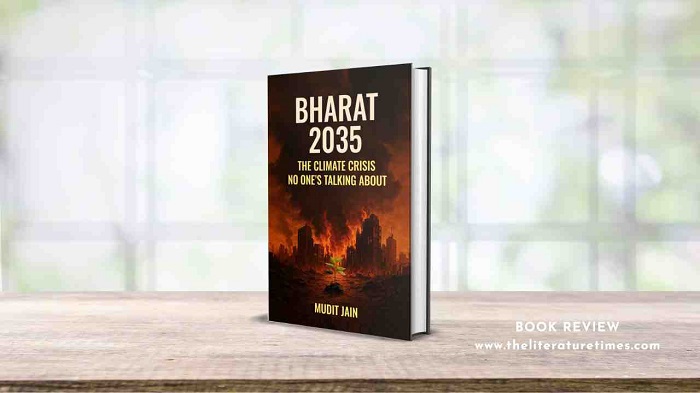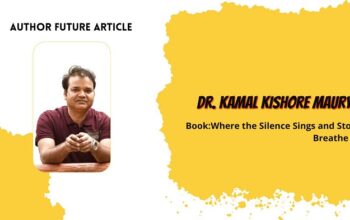Author: Mudit Jain
In a time when conversations around climate change are either too technical to grasp or too distant to feel urgent, Bharat 2035: The Climate Crisis No One’s Talking About by Mudit Jain emerges as a powerful, accessible, and deeply personal book that refuses to let us look away. This isn’t a futuristic dystopia. It’s a stark, data-backed reflection of the path we are already on, written with urgency and emotion that hits harder than any report or news headline.
The strength of this book lies in its ability to merge lived experience with hard facts. Jain does not write as a climate scientist or academic, but as a regular Indian urbanite who had his life changed by a simple, heartbreaking incident. When a security guard in his apartment complex collapsed from heatstroke during a scorching summer, it was no longer possible for him to ignore the crisis. That one moment of vulnerability, so close to home, shattered his indifference and set him on a journey of questioning his own choices, his lifestyle, and the silence that surrounds climate discussions in India.
From this very personal beginning, Jain takes readers through a journey that is both frightening and enlightening. He talks about dry taps in metropolitan cities, toxic air choking children, floods that destroy lives overnight, and forests replaced by endless concrete. The writing is vivid, relatable, and alarmingly close to the everyday realities many of us are already witnessing. What makes Bharat 2035 unique is that it doesn’t treat climate change as an abstract “global issue” but as a lived, Indian problem unfolding in our cities, homes, and lungs.
Yet, this book is not an exercise in despair. Unlike many environmental narratives that leave readers overwhelmed and hopeless, Jain threads his storytelling with a clear message of actionable hope. He acknowledges the terrifying data, but instead of stopping at fear, he shifts the focus to what individuals, families, and communities can do. From small lifestyle adjustments to collective action, he emphasizes that the solutions begin with us—not with distant policymakers alone. His tone is not preachy but conversational, making the reader feel like they are being invited into an honest dialogue rather than being lectured.
The emotional honesty of the book is striking. Jain admits to his own contradictions and doesn’t shy away from pointing out that change is uncomfortable. His voice is equal parts frustrated, urgent, and empathetic—a balance that makes the book both engaging and thought-provoking. At times, his words feel like a friend shaking you awake, reminding you that time is running out.
Professionally, Jain runs Happy & Hungry – The Event Co., a company promoting eco-conscious, sustainable events across India and the Middle East. But this book is not about his professional achievements. Instead, it is his attempt to scream into the silence, to connect with fellow citizens who feel something is wrong but don’t know where to begin. It is both a mirror and a guide, reflecting the harsh realities while lighting a way forward.
For every Indian who still believes climate change is a faraway issue, Bharat 2035 proves otherwise. It is already here, altering the way we live, breathe, and survive. And unless we begin to act, the future Jain describes may arrive sooner than we think.
In the end, Bharat 2035 is more than just a book—it is a call to awareness, responsibility, and collective action. It is a reminder that the climate crisis is not “someone else’s problem” but ours, and the choices we make today will shape the India our children inherit in 2035 and beyond.
A bold, heartfelt, and unflinchingly honest account of India’s silent climate emergency. Essential reading for every urban Indian who cares about tomorrow.



